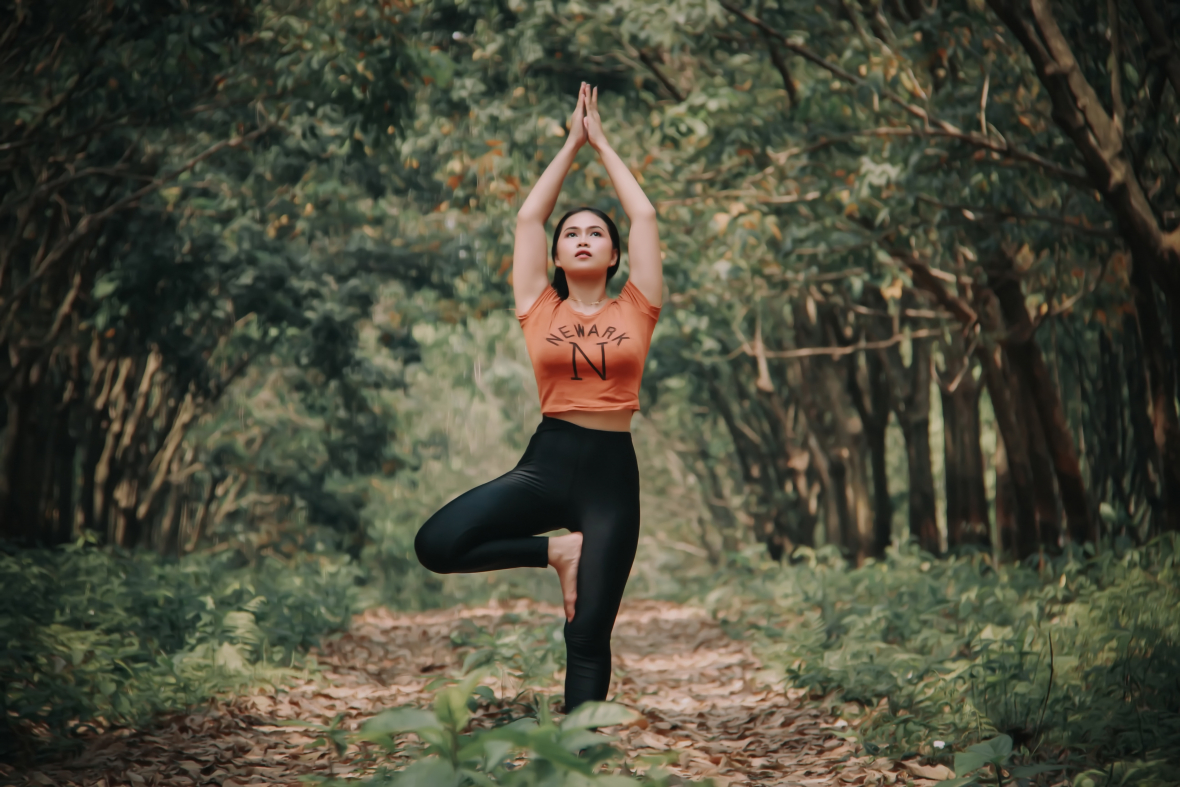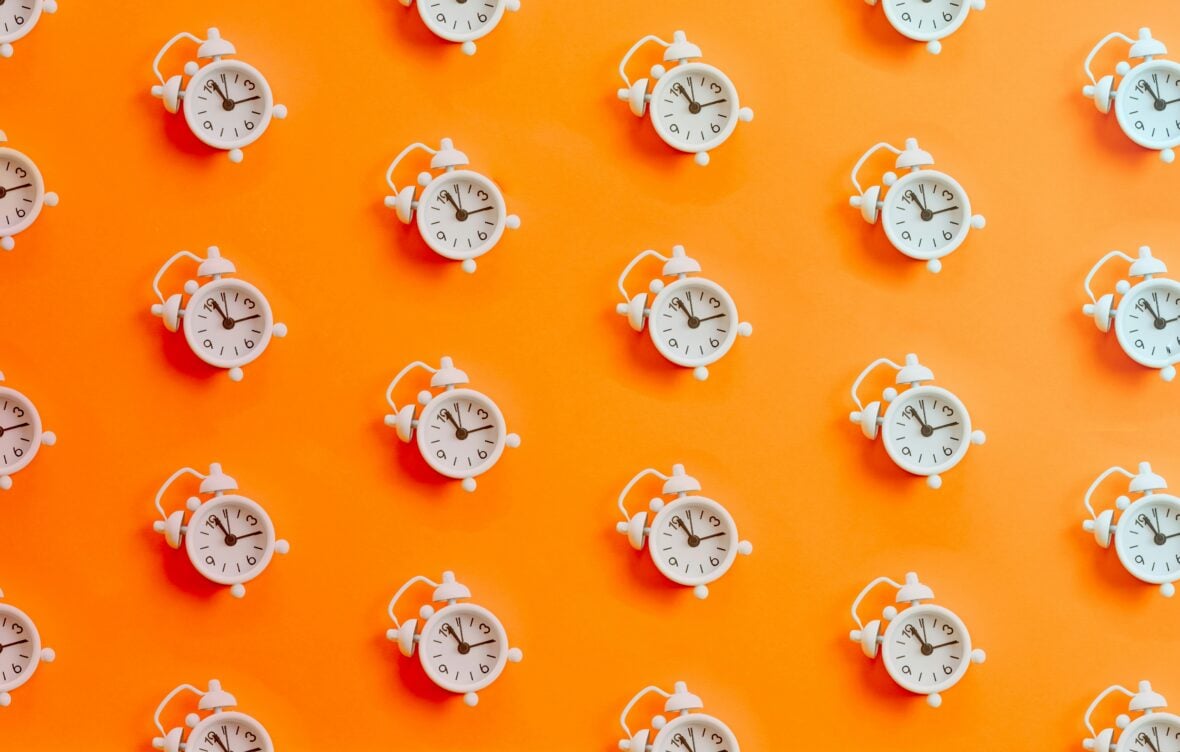Your body’s circadian clock is like a type A stage manager. Also referred to as your circadian rhythms, these biological background functions call the shots on everything from the ideal time to hit you with a dose of natural melatonin to send you to sleep to sending hunger signals when your body is best poised to digest a meal. When you don’t listen to the stage manager – the set starts to fall apart.
So, what’s the key to embracing your identity—whether you’re a sunrise enthusiast or a creature of the night—while fine-tuning your circadian rhythm, to be the best version of yourself? Here’s the real deal on biohacking your body’s internal clock.
The Real Boss of Our Body: The Circadian Clock

Your circadian clock orchestrates a symphony of your most important bodily functions. Sleep, hormone production, appetite, digestion, and detoxification are all regulated by these internal rhythms. When life throws us curveballs, we may steamroll through these natural rhythms in favor of meeting life’s demands. Biohacking your body can help guide you back to the sweet spot.
Want to stay on top of the latest in wellness? Sign up for the newsletter for more well-researched, non-toxic living guidance and smart wellness advice.
What is Biohacking?
Biohacking is based on the idea that you can change the environment around you and inside of you so you have full control of your own biology. It uses science and self experimentation to optimize your body and mind using simple ways to live smarter and healthier.
Embrace your body’s natural rhythm and watch your productivity soar.
Dave Asprey, Father of Biohacking
How We Sabotage Our Biological Rhythms
Light exposure has the biggest impact on setting (or throwing off) your circadian rhythm, but it’s also influenced by temperature, food intake, stress levels, and even your social environment1 .
Because your circadian rhythm influences so many important processes in your body, it’s crucial that you don’t mess it up with the wrong type of light, poor meal timing, or disordered sleep patterns. Studies show that disrupting your circadian rhythm can increase your risk of type II diabetes2, cardiovascular disease3, and several types of cancer4.
Signs Your Circadian Rhythm is Off
If you’re finding yourself tired during the day and unable to get the best sleep at night, your circadian rhythm might be out of whack. If this is you, don’t worry! I was there, too. Here are several biohacks you can use to get your circadian rhythm back into alignment. I’ve experimented with all of them personally.
If you’ve tried any of these biohacks, we’d love to hear about your experiences. Please share in the comments below!
7 Tips to Reset Your Circadian Rhythm

1. Get to Know Your Chronotype (Natural Sleep Patterns)
Your chronotype describes your body’s natural inclination to feel awake or sleepy at certain times. Think early bird vs. night owl. There are actually four different chronotypes, and knowing yours can help you improve your sleep, your mood, and your productivity.
I bought into the “early bird catches the worm” myth for a long time. Before I became a biohacker I spent my whole life working against my natural circadian rhythm and pushing myself to be an early riser.
For two years, I forced myself to wake up at 5 am and meditate. I truly believed that was what it would take to be successful. But guess what? It didn’t make me more productive or happier. It just made me tired. It took years of tracking and hacking my sleep for me to realize I had been wasting a ton of time trying to be a morning person.
Instead of fighting my body by forcing it to sleep when it was naturally alert and wake up when it was naturally tired, I eventually learned to work with my natural rhythms. As a result, I became more productive and happier.
Embrace your body’s natural rhythm and watch your productivity soar. You can find out your chronotype (and learn some useful tips about it) by taking a simple quiz.
Research is constantly evolving when it comes to your circadian rhythm. Recent studies show that even the microbes living in your gut change based on a 24-hour cycle impacting your overall health
2. Pay Attention to Your Light Environment
Because light is the most important factor in setting your circadian rhythm, be mindful about the light you’re exposed to throughout the day. Sunlight in the morning is especially important as it sends a signal to your internal clock that it’s daytime. Morning sun also tells your body to make serotonin, which helps with mood and well-being. Staring with 5 to 10 minutes of sunlight (without sunglasses) in the morning can make a huge difference in your mood and sleep quality.
Just like the right type of light at the right time can be beneficial, the wrong type of light or light at the wrong time can be kryptonite. Artificial indoor lighting and the light that comes from our phones and computer screens is something I like to refer to as “junk light”. This type of light lacks many of the sun’s natural wavelengths and is unnaturally high in blue light.
Artificial blue light is especially harmful at night because it inhibits your body from producing melatonin, an important hormone involved in your sleep-wake cycle. Make sure that you limit your exposure to junk light at least 2 hours before bedtime. You can do this by wearing glasses that filter the wavelengths of light that interfere with your body’s natural rhythm. I use the ones from my company, True Dark.
3. Workout Based on Your Chronotype
A study published in Sports Medicine Open showed that the time of your ideal athletic performance depends on what time you prefer to wake up in the morning 5. Those who are morning people perform better earlier in the day, while those who wake up later perform better later in the day.
Of course, the best time for regular excercise is whenever you’re going to do it because some exercise is better than none, even if it’s not at your ideal time.
4. Touch the Earth (especially when you’re traveling)

Traveling across time zones can seriously mess with your circadian rhythm. As soon as you get to your destination, go find a grassy, sunny area, take off your shoes, and do some yoga or walking. Connecting your bare skin with the earth helps reset your circadian rhythm. I’ve noticed that when I ground myself after a long flight, I experience no jet lag.
5. Eat an Early Dinner
Your nighttime routine can nurture or negate your circadian rhythms. Our metabolisms have evolved to process food best during the day when the sun is up. Food in your gut is a signal to your internal clock that it must be daytime, so late night meals can throw off your circadian rhythm.
If you eat too close to your bedtime, your body will still be actively engaged in the digestion process when you lay down to sleep. When you sleep, your body devotes energy to repairing your tissues. If your body is too busy digesting food, it will put those important repair processes on the back burner.
Your glucose and insulin levels also stay elevated for a longer time after an evening meal than when you eat during the day, which can lead to an elevated risk of type II diabetes and high blood pressure. I’ve even tested this on myself with a continuous glucose monitor. I’ve consistently noticed that a late dinner causes me to have higher blood sugar levels the next day. Finish your last meal before sundown and at least 2 to 3 hours before you go to bed.
6. Do a Morning Cold Plunge and an Evening Hot Shower
Temperature is another important factor that influences your internal clock. When you take a cold shower or do a cold plunge in the morning, your body releases a neurotransmitter called norepinephrine, which plays a role in regulating your circadian rhythm6.
A cold shower in the morning also triggers a temporary cortisol release, which promotes wakefulness7. You may think cortisol is a bad thing, but it’s not. Your body naturally experiences a surge of cortisol in the morning to get your body awake and moving. It’s an important part of your circadian rhythm8.
Conversely, a warm shower or bath at night can help you fall asleep faster. As you cool off, your body temperature falls, which is a natural signal that it’s time to sleep 9.
7. Lean into the Rhythms
Research is constantly evolving when it comes to your circadian rhythm. Recent studies show that even the microbes living in your gut change based on a 24-hour cycle impacting your overall health10. Who knows what other cool things we’ll learn in the near future about how we can support our circadian rhythm for better health? For now, start by implementing the hacks above and watch your sleep, mood and energy levels improve!
Read More on Organic Authority

*Note! The opinions and views expressed by the authors at Organic Authority in blogs and on social media and more, are theirs alone and do not necessarily reflect the views, opinions or position of Organic Authority, Inc and do not necessarily represent the views of Organic Authority sponsors and/or partners. Organic Authority content is for informational and entertainment purposes, and any views expressed should not be accepted as a substitute for qualified expertise. Any highlighted alternative studies are intended to spark conversation and are for information purposes only. We are not here to diagnose or treat any health or medical conditions, nor should this be relied upon as a substitute for professional medical advice, diagnosis or treatment, even if it features the advice of medical practitioners and physicians. When making any lifestyle or health changes, consult your primary care physician.
Sources:
- “Circadian Rhythms.” National Institute of General Medical Sciences, U.S. Department of Health and Human Services, Sept. 2023, www.nigms.nih.gov/education/fact-sheets/Pages/circadian-rhythms.aspx#:~:text=Circadian%20rhythms%20are%20the%20physical,and%20temperature%20also%20affect%20them.
- Parameswaran G, Ray DW. Sleep, circadian rhythms, and type 2 diabetes mellitus. Clin Endocrinol (Oxf). 2022; 96: 12-20. https://doi.org/10.1111/cen.14607
- Morris CJ, Purvis TE, Hu K, Scheer FA. Circadian misalignment increases cardiovascular disease risk factors in humans. Proc Natl Acad Sci U S A. 2016 Mar 8;113(10):E1402-11. doi: 10.1073/pnas.1516953113. Epub 2016 Feb 8. PMID: 26858430; PMCID: PMC4790999.
- Miro C, Docimo A, Barrea L, Verde L, Cernea S, Sojat AS, Marina LV, Docimo G, Colao A, Dentice M, Muscogiuri G. “Time” for obesity-related cancer: The role of the circadian rhythm in cancer pathogenesis and treatment. Semin Cancer Biol. 2023 Jun;91:99-109. doi: 10.1016/j.semcancer.2023.03.003. Epub 2023 Mar 7. PMID: 36893964.
- Facer-Childs ER, Boiling S, Balanos GM. The effects of time of day and chronotype on cognitive and physical performance in healthy volunteers. Sports Med Open. 2018 Oct 24;4(1):47. doi: 10.1186/s40798-018-0162-z. PMID: 30357501; PMCID: PMC6200828.
- Johnson DG, Hayward JS, Jacobs TP, Collis ML, Eckerson JD, Williams RH. Plasma norepinephrine responses of man in cold water. J Appl Physiol Respir Environ Exerc Physiol. 1977 Aug;43(2):216-20. doi: 10.1152/jappl.1977.43.2.216. PMID: 911386.
- Yankouskaya A, Williamson R, Stacey C, Totman JJ, Massey H. Short-Term Head-Out Whole-Body Cold-Water Immersion Facilitates Positive Affect and Increases Interaction between Large-Scale Brain Networks. Biology (Basel). 2023 Jan 29;12(2):211. doi: 10.3390/biology12020211. PMID: 36829490; PMCID: PMC9953392.
- Clow A, Hucklebridge F, Thorn L. The cortisol awakening response in context. Int Rev Neurobiol. 2010;93:153-75. doi: 10.1016/S0074-7742(10)93007-9. PMID: 20970005.
- Sung EJ, Tochihara Y. Effects of bathing and hot footbath on sleep in winter. J Physiol Anthropol Appl Human Sci. 2000 Jan;19(1):21-7. doi: 10.2114/jpa.19.21. PMID: 10979246.
- Voigt RM, Forsyth CB, Green SJ, Engen PA, Keshavarzian A. Circadian Rhythm and the Gut Microbiome. Int Rev Neurobiol. 2016;131:193-205. doi: 10.1016/bs.irn.2016.07.002. Epub 2016 Sep 6. PMID: 27793218.
Source link

